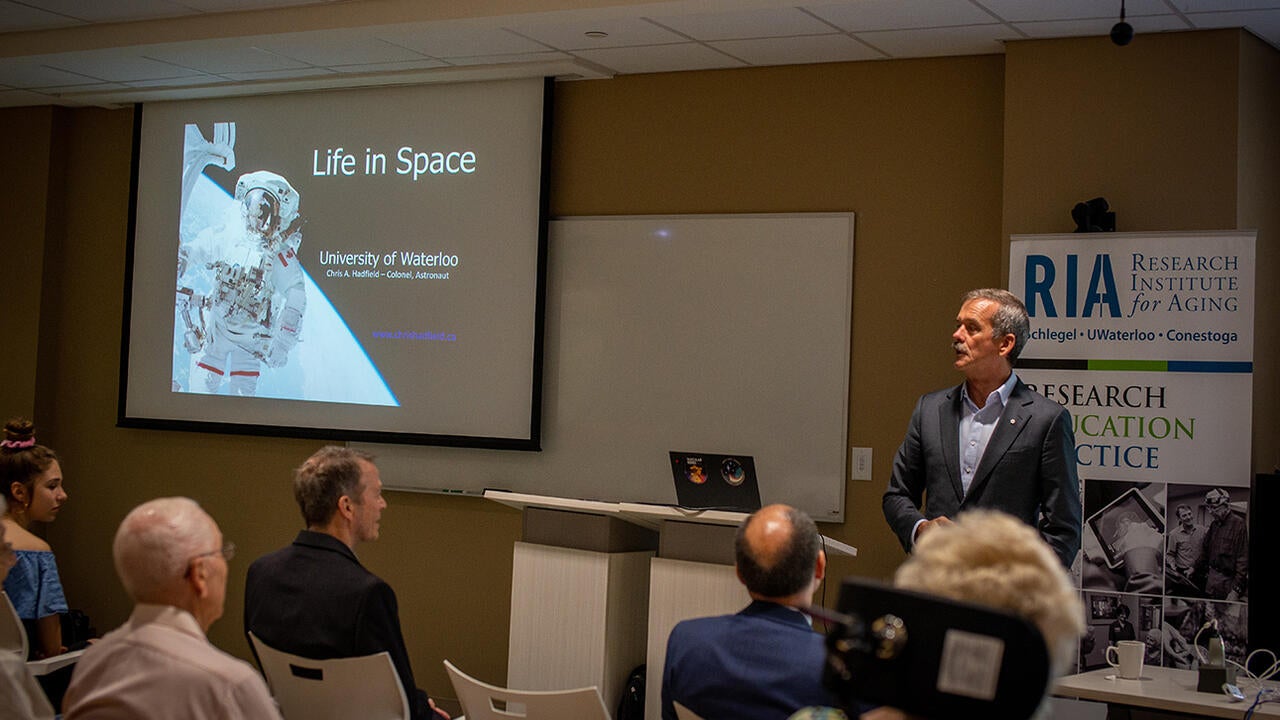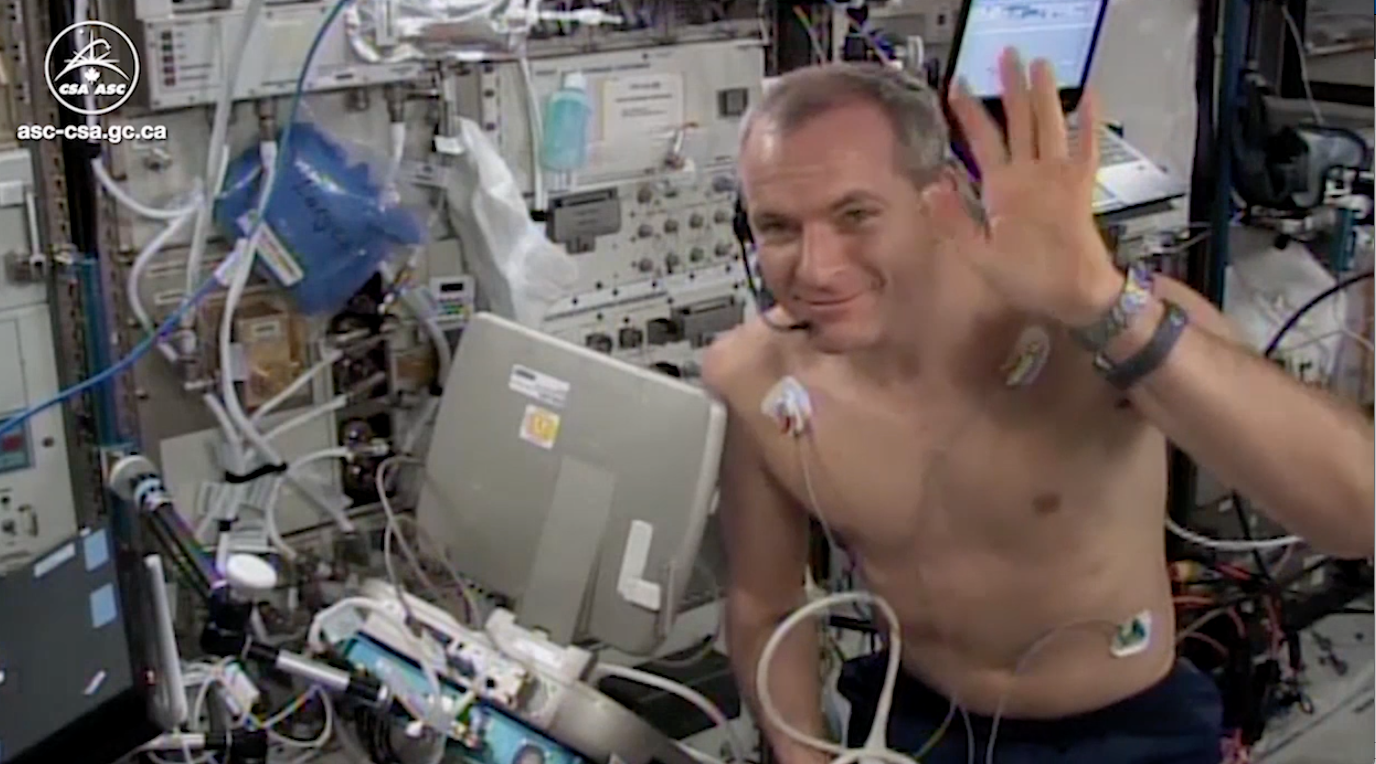
What can space teach us about aging here on Earth?
Waterloo researchers work with astronauts at the International Space Station to study aging and cardiovascular health

Waterloo researchers work with astronauts at the International Space Station to study aging and cardiovascular health
By Research Institute for AgingCanadian Space Agency (CSA) astronaut David Saint-Jacques will return to Earth in a few days after more than six months in space. Using data obtained from Saint-Jacques’ during his space mission, a Waterloo research team is helping to develop strategies for healthy aging here on Earth.
That’s because in some ways, space travel mimics the aging process. After only a few months in space, astronauts begin to develop insulin resistance, and their arteries are stiffer by the equivalent of aging 20 years. Stiff arteries can affect blood pressure, a common issue in older adults. These changes can interfere with movement and cognition, and contribute to the development of heart disease. Insulin resistance is a precursor to type 2 diabetes, for which middle aged and older adults are at higher risk. Canadian astronauts are the perfect subjects to study aging and cardiovascular health over a short period of time.
At an event held on June 21 at the Schlegel-UW Research Institute for Aging, Richard Hughson, a Waterloo Kinesiology professor and Schlegel Research Chair in Vascular Aging and Brain Health, talked about Vascular Echo, his research project funded by the CSA, to which Saint-Jacques is contributing.

David Saint-Jacques
Vascular Echo is named after the technology the team is using to collect data, and will inform the next stage in Hughson’s research findings. He had previously found that after only a few months in space, astronauts’ arteries stiffen by the equivalent of aging 20 years on Earth.
During this most recent project, Hughson and his international team will compare cardiovascular data collected from astronauts on the International Space Station (ISS) – like Saint-Jacques’ – with older adults here on Earth to try to find ways to slow down or even dial back stiffening arteries.
Hughson has already worked with several astronauts, most notably former Canadian Space Agency astronaut Chris Hadfield during his time as commander aboard the ISS in 2012-13.
“It is very exciting for our team, my students and the community that we can do our research with Canadian Space Agency astronaut David Saint-Jacques,” says Hughson. “We are collecting ultrasound images using the robotic ultrasound system and taking blood samples on the ISS to explore the rapid ‘aging-like’ changes to arteries during space flight.”
The research team, based in Waterloo and in France, communicated with Saint-Jacques through a video connection to the ISS, and guided him through the research protocol, allowing them to see in real time the data being collected as Saint-Jacques used ultrasound to assess the health of his arteries.
“Often the most surprising discoveries happen at the furthest reaches of exploration,” says retired Canadian astronaut Chris Hadfield. “The International Space Station is a unique laboratory, pushing our collective abilities and knowledge to the very limit. I’m delighted to be a part of Canada’s research there, understanding and benefiting the health of our seniors.”
Only in the past few years have researchers started to understand the full effects of space travel on cardiovascular health. Partnerships between Canadian researchers and astronauts have made these discoveries possible, and strengthened Canada’s reputation for leading innovative space research.

Read more
Research highlights omega-3 benefits of waterfowl and fish while confirming mercury intake in northern Indigenous communities

Read more
“I’m just like you.”

Read more
Dr. Troy Glover shares key strategies for improving health and well-being this year through collective community participation
The University of Waterloo acknowledges that much of our work takes place on the traditional territory of the Neutral, Anishinaabeg, and Haudenosaunee peoples. Our main campus is situated on the Haldimand Tract, the land granted to the Six Nations that includes six miles on each side of the Grand River. Our active work toward reconciliation takes place across our campuses through research, learning, teaching, and community building, and is co-ordinated within the Office of Indigenous Relations.